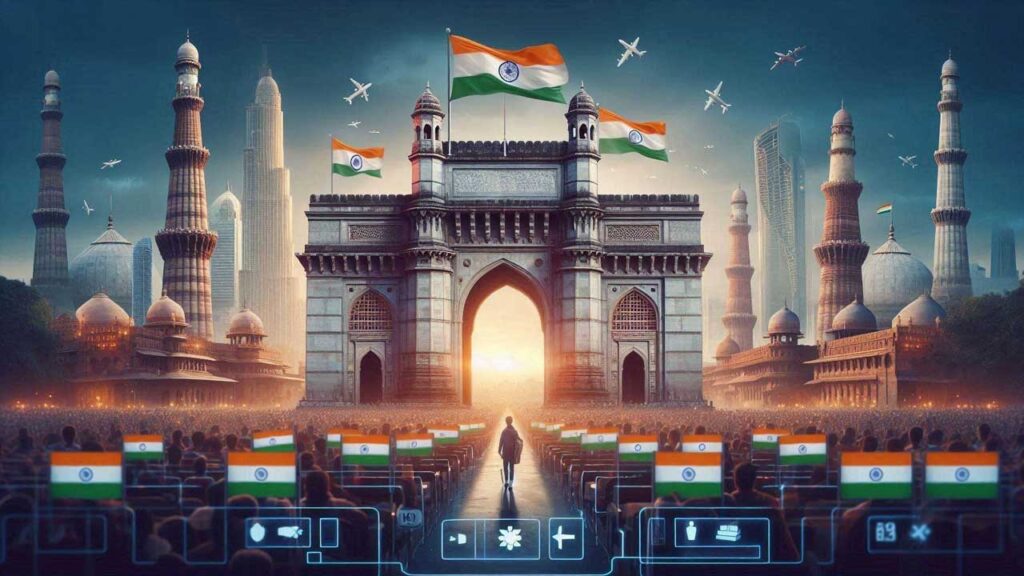Today’s Current Affairs brought a whirlwind of announcements from Google I/O, including updates to Android security features, Google TV, a new Private Space feature, and more. The addition of geospatial AR content to Google Maps, the unveiling of Wear OS 5, and the introduction of Firebase Genkit for AI-powered applications were among the highlights. With a focus on AI throughout the event, Google also introduced LearnLM, a generative AI model for learning. Stay tuned for more exciting developments in the tech world! Today’s Current Affairs are buzzing with exciting advancements in education technology and AI. Google is introducing LearnLM to help educators streamline lesson planning and discover new content tailored to student needs. Additionally, new AI-generated quizzes on YouTube and Gemini updates are revolutionizing the way we learn and interact with technology. Stay updated on the latest Google Play features, scam detection during calls, and innovative additions to Google Photos powered by Gemini AI. With Gemini Live and Gemini Nano, Google is pushing the boundaries of AI technology to enhance user experiences across various platforms. Get ready for a future where AI seamlessly integrates into daily tasks, making life easier and more efficient. Today’s Current Affairs: Google has unveiled its latest generation of Tensor Processing Units (TPU) AI chips, named Trillium, which will launch later this year. These new TPUs will offer a significant performance boost compared to the previous generation and feature the third generation of SparseCore for processing large embeddings. Additionally, Google is integrating more AI into its search features and introducing generative AI models like Imagen 3. The company has also launched Project IDX, an AI-centric development environment, and Veo, an AI model for creating video clips. Not to mention, the new Pixel 8a smartphone and Pixel Slate tablet are now available. Stay tuned for more updates throughout the day!
1. What new security features is Google adding to Android?
A) On-device live threat detection
B) Better security against cell site simulators
C) AI to detect unauthorized app interactions
D) All of the above
Answer: D) All of the above
2. What does Google TV’s Gemini feature do?
A) Generates descriptions for movies and TV shows
B) Fills in missing descriptions on the home screen
C) Translates descriptions into the viewer’s native language
D) All of the above
Answer: D) All of the above
3. What is the Private Space feature on Android?
A) A feature that silos a portion of the operating system for sensitive information
B) A second layer of authentication for designated apps
C) Apps are hidden from notifications, settings, and recents
D) All of the above
Answer: D) All of the above
4. Where will Google Maps users soon have access to geospatial AR content?
A) Singapore
B) Paris
C) Both A and B
D) None of the above
Answer: C) Both A and B
5. What is Firebase Genkit?
A) A new addition to the Firebase platform
B) A framework for building AI-powered applications
C) Open source with Apache 2.0 license
D) All of the above
Answer: D) All of the above 1. What new feature is being added to YouTube for educational videos?
A) Quizzes
B) Games
C) Live chats
D) Polls
Answer: A) Quizzes
2. What is the name of Google’s new AI model being integrated into Google Photos?
A) Gemini Nano
B) Gemini Pro
C) Gemini Live
D) Gemini 1.5
Answer: A) Gemini Nano
3. Which Google product is getting an AI infusion with the launch of Ask Photos?
A) Google Play
B) Google Maps
C) Google Photos
D) Gmail
Answer: C) Google Photos
4. What is Gemini Live in Google’s Gemini AI model?
A) A new voice chat feature
B) A photo editing tool
C) A video streaming service
D) A music recommendation feature
Answer: A) A new voice chat feature ## Question 1: What is the name of Google’s next generation of Tensor Processing Units (TPU) AI chips?
– A. Trillium
– B. Gemini
– C. Imagen 3
– D. Veo
Answer: A. Trillium
## Question 2: What feature does the Trillium TPU chips boast that is important for processing ultra-large embeddings common in advanced ranking and recommendation workloads?
– A. SparseCore
– B. Gemini
– C. Imagen 3
– D. Veo
Answer: A. SparseCore
## Question 3: Which AI model family did Google announce the latest version of, called Imagen 3?
– A. Trillium
– B. Gemini
– C. Imagen
– D. Veo
Answer: C. Imagen
## Question 4: What new feature does Google’s Pixel 8a phone include?
– A. Tensor G3 chip
– B. SparseCore
– C. Imagen 3
– D. Veo
Answer: A. Tensor G3 chip
1. Updated security features: Google announced new security and privacy protections for Android, including on-device live threat detection and better safeguards against malicious apps.
2. Google TV: Google has integrated Gemini into its Google TV operating system to generate descriptions for movies and TV shows automatically, translating them into the viewer’s language and personalizing them based on preferences.
3. Private Space feature: This new Android feature allows users to create a secure space within the operating system for sensitive information, similar to Incognito mode, with locked access and hidden notifications.
4. Google Maps geospatial AR: Google Maps users will soon have access to geospatial augmented reality content in select locations, allowing for an enhanced viewing experience and the ability to share it through social media.
5. Wear OS 5: The latest version of the Wear OS smartwatch operating system focuses on improving battery life, workout tracking, and developer tools for creating watch faces and apps.
6. “Web” search filter: Google introduced a new filter to show only text-based links in search results, allowing users to easily access classic blue links and text-based web pages.
7. Firebase Genkit: A new addition to the Firebase platform, Genkit makes it easier for developers to build AI-powered applications in JavaScript/TypeScript, with support for Go coming soon, enabling quick integration of AI features into apps.
8. Generative AI for learning: Google unveiled LearnLM, a family of generative AI models designed for learning, which will be piloted in Google Classroom to provide conversational tutoring on various subjects. 1. How is Google working with educators to improve lesson planning?
Google is working with educators to see how LearnLM might simplify and improve the process of lesson planning. LearnLM could help teachers discover new ideas, content, and activities, or find materials tailored to the needs of specific student cohorts.
2. What new feature is being introduced on YouTube for educational videos?
A new AI-generated quizzes tool is being introduced on YouTube for educational videos. This tool allows users to ask clarifying questions, get explanations, or take quizzes on the subject matter while watching educational videos.
3. What is the Engage SDK and how does it benefit developers?
The Engage SDK is a feature that allows app makers to showcase their content to users in a personalized, full-screen, immersive experience. This benefits developers by providing a new way to engage users with their app content.
4. How will Google help users detect potential scams during calls?
Google previewed a feature that will be built into a future version of Android, utilizing Gemini Nano, the smallest version of Google’s generative AI offering. This feature will listen for conversation patterns commonly associated with scams in real time and alert users to potential scams during calls.
5. What is the Ask Photos feature in Google Photos and how does it work?
Ask Photos is an experimental feature in Google Photos powered by Google’s Gemini AI model. This feature allows users to search across their Google Photos collection using natural language queries that leverage an AI’s understanding of their photo’s content and other metadata, making it easier to find specific content in photos.
6. How is Google using Gemini AI technology in Gmail?
Gmail users will be able to search, summarize, and draft their emails using Gemini AI technology. Additionally, Gemini can take action on emails for more complex tasks, like helping with e-commerce returns by searching for receipts and filling out online forms.
7. What is Gemini Live and how does it enhance user experience?
Gemini Live is a new experience in Gemini that allows users to have in-depth voice chats with Gemini on their smartphones. Users can interrupt Gemini while speaking, ask clarifying questions, and Gemini will adapt to their speech patterns in real time. This enhances user experience by providing more natural and interactive interactions with the AI.
8. How is Gemini Nano being integrated into the Chrome desktop client?
Gemini Nano, the smallest of Google’s AI models, is being integrated directly into the Chrome desktop client, starting with Chrome 126. This integration will enable developers to use the on-device model to power their own AI features, such as the “help me write” tool from Workspace Lab in Gmail.
9. How will Gemini on Android enhance user experience with Google apps?
Gemini on Android, Google’s AI replacement for Google Assistant, will deeply integrate with Android’s mobile operating system and Google’s apps. Users will be able to drag and drop AI-generated images into Gmail, Google Messages, and other apps, as well as tap “Ask this video” on YouTube to find specific information within a video.
10. How will Gemini capabilities be implemented on Google Maps for developers?
Gemini model capabilities are coming to the Google Maps platform for developers, starting with the Places API. Developers can show generative AI summaries of places and areas in their apps and websites, created based on insights from Google Maps’ community of contributors, eliminating the need for custom descriptions of places.
What performance boost do the new Tensor Processing Units offer?
The new Tensor Processing Units offer a 4.7x performance boost in compute performance per chip compared to the fifth generation.
What new feature does Trillium, the latest TPU, include?
Trillium features the third generation of SparseCore, which is a specialized accelerator for processing ultra-large embeddings common in advanced ranking and recommendation workloads.
What AI enhancements is Google adding to its search?
Google is adding more AI to its search, including AI-powered overviews for users in the U.S. and using generative AI to organize entire search results pages for some search results.
What improvements does Google’s Imagen 3 generative AI model offer?
Google’s Imagen 3 generative AI model more accurately understands text prompts and is more creative and detailed in its generations. It produces fewer distracting artifacts and errors, particularly in rendering text for image generation.
What is Project IDX and what integrations does it offer?
Project IDX is Google’s next-gen, AI-centric browser-based development environment. It integrates with Google Maps Platform for geolocation features, Chrome Dev Tools and Lighthouse for debugging applications, and soon will allow deploying apps to Cloud Run, Google Cloud’s serverless platform.
What is Veo, and what can it do?
Veo is an AI model that can create 1080p video clips around a minute long given a text prompt. It can capture different visual and cinematic styles, make edits to footage, and build on Google’s commercial work in video generation.
What is Circle to Search, and what improvements does it offer?
Circle to Search is an AI-powered feature on Android that allows users to get instant answers using gestures like circling. It can now solve more complex problems across physics and math word problems, making it easier to engage with Google Search from anywhere on the phone.
What updates does the new Pixel 8a offer?
The new Pixel 8a starts at $499 and features the addition of the Tensor G3 chip.
What is the latest on Google’s Pixel Tablet, Slate?
Google’s Pixel Tablet, Slate, is now available without the base. It was reviewed last year by Brian Heater.
Today's Current Affairs saw Google making significant announcements at its annual developer conference, Google I/O. One of the major updates includes the addition of new security features to Android, enhancing protection against malicious apps and unauthorized interactions. Additionally, Google introduced AI-powered descriptions for movies and TV shows on its Google TV platform, making content more accessible and personalized.
Another interesting update is the introduction of Private Space on Android, allowing users to create a secure section for sensitive information within the operating system. Google Maps will soon feature geospatial AR content in select locations, providing users with an immersive experience when exploring new places. Wear OS 5 was also previewed, focusing on improved battery life and performance enhancements for smartwatches.
Furthermore, Google rolled out a new "Web" search filter to help users find text-based links more efficiently. Firebase Genkit was introduced to simplify the integration of AI into applications, with a focus on content generation and text translation. The event also highlighted Google's commitment to AI, with the introduction of LearnLM, a generative AI model for educational purposes. Overall, Google's I/O conference showcased the company's continued innovation in AI technology across various platforms. Today's Current Affairs bring exciting updates from Google, as the tech giant introduces new features and enhancements across its platforms. From AI-generated quizzes on YouTube to the launch of Gemma 2 with a 27-billion-parameter model, Google is pushing the boundaries of technology in education and developer tools. Additionally, Google Play is getting a new discovery feature for apps, and Google Photos is set to receive an AI infusion with Ask Photos powered by Gemini AI. Not to forget, Gemini Nano is being integrated into Chrome desktop client, offering developers the ability to power their own AI features. With Gemini Live and Gemini on Android and Google Maps, Google is revolutionizing the way we interact with AI technology. Stay tuned for more updates on Google's innovative advancements in the tech world. Today's Current Affairs brings exciting news from Google, as the tech giant unveils its latest Tensor Processing Units (TPU) chips. The new Trillium chips will offer a 4.7x performance boost compared to the previous generation, with a focus on advanced AI workloads. Additionally, Google is enhancing its search capabilities with more AI-powered features, including generative AI for organizing search results. The company also announced Imagen 3, a new generative AI model that produces more accurate and detailed images. Furthermore, Google introduced Project IDX, an AI-centric development environment, and Veo, an AI model for creating video clips. The Circle to Search feature now supports solving complex problems, and the Pixel 8a smartphone with the Tensor G3 chip is now available. Stay tuned for more updates throughout the day!



